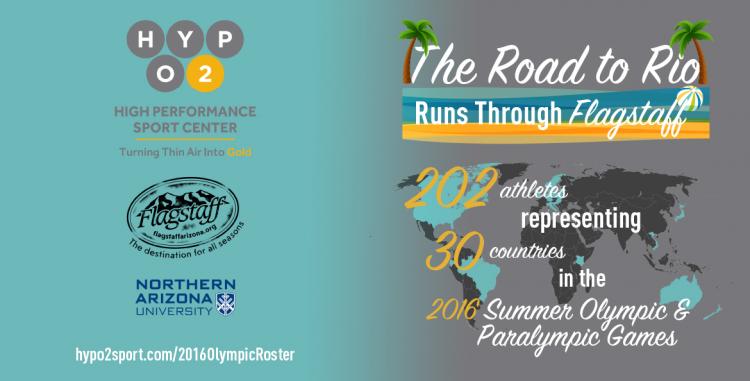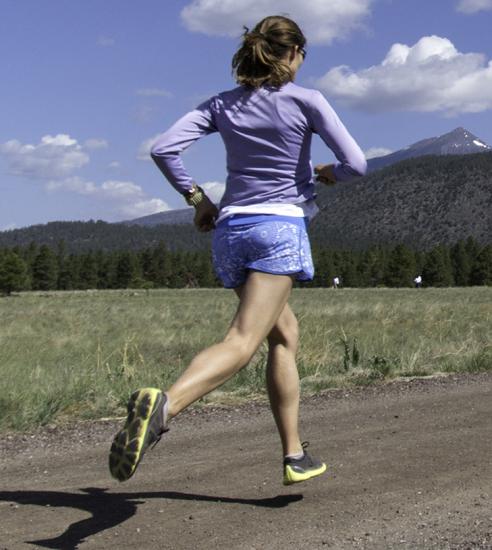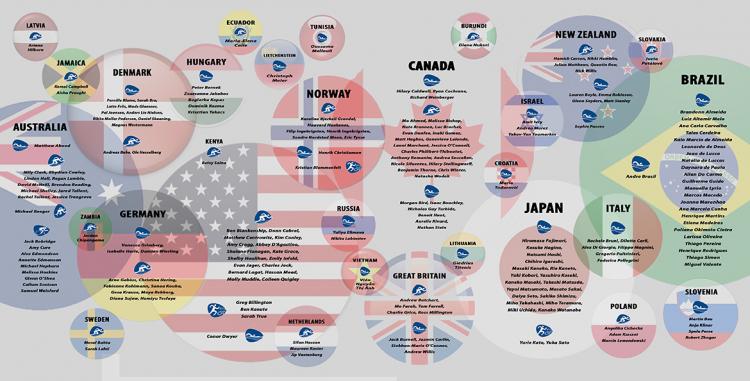The Road to Rio Runs Through Flagstaff
In August 2016 the world will be watching elite athletes battle to bring home gold in the summer Olympics in Rio De Janeiro, Brazil.

#RoadToRio is already trending on social media as these athletes ramp up their training for the Olympics. But before they head to Rio, many of these athletes will travel to Flagstaff as part of their training and preparation for the games.
Altitude training is virtually a given in the world of elite sport, and it’s becoming rarer and rarer to see an endurance athlete succeed at the highest levels of Olympic and professional sport without using it. But, while its popularity and success are pretty indisputable, what is not so cut-and-dried is where these athletes will go for such training. That’s where Flagstaff comes in.

Our fair city has a long history as an altitude training site going back to when elite athletes discovered Flagstaff in the 1960s as they prepared for the altitude-based 1968 Olympics in Mexico City. Through the years Flagstaff has proven itself to be the world’s preeminent altitude training locale. Why? Well, successful training camps hinge on a number of things but, in the end, it’s all about the milieu, and Flagstaff manages to effectively tick all the boxes.
Flagstaff is situated at the perfect base elevation for altitude training, has easy proximity to lower and higher elevations, is home to both high quality training venues on the campus of Northern Arizona University and high quality sport performance services from Hypo2; not to mention a strong sport culture to boot. And, unlike many high altitude training sites, all this is based within a fully functioning city, a vibrant mountain town environment where the athletes can get away from the daily grind of training by eating out in great restaurants, grabbing coffee in uniquely local cafes, going shopping, etc. Combine all that with the ability to visit world-class destinations like the Grand Canyon and Sedona on rest days, and it’s a truly exceptional package.

Although many people are aware of all the athlete activity in Flagstaff, most do not fully understand the magnitude of this activity and its impact on the international sport community. Here are some stats to ponder as we look toward this coming summer’s Olympic Games.
1. Since the 1996 Olympics in Atlanta, over 10,000 world class sport personnel (athletes, coaches, sport scientists, etc.) from 29 countries have made Flagstaff their altitude training site of choice.
2. A great many of the world-class athletes who’ve trained in Flagstaff have snagged Olympic medals, won world championships and set world records following their time here. In swimming alone, athletes who did their altitude training in Flagstaff have won more than 200 Olympic and Paralympic medals over the last five Summer Olympic Games.
3. If Flagstaff were a country, and could lay claim to its athletes the way actual countries do in their tallying of medal counts, it could boast being a top 10 nation over the course of the last five quadrennial cycles (the four-year summer Olympic cycle). That’s out of over 200 participating countries.

This August, when the eyes of the world turn toward its very best athletes parading through the Maracanã Stadium in Rio de Janeiro for the 2016 Olympic Opening Ceremonies, everyone in Flagstaff should feel an enormous sense of pride in the role this community played in helping some of them get there. As we enter into the last few months before the Rio Games, there will be the usual media frenzy and innumerable stories about how athletes prepare for the single greatest sporting event on the planet. But the best story of all for the entire northern Arizona community is that, for a great many world-class athletes, the way they travel their own “Road to Rio” is by taking it right through Flagstaff. Check #RoadToRio on social media to follow athletes training in Flagstaff and around the world for the summer Olympics
About the Author

Sean Anthony
Sean Anthony is the CEO of HYPO2 High Performance Sport Center in Flagstaff, Arizona. Sean has worked with thousands of elite athletes from almost 30 countries and has represented Flagstaff at many events and with many organizations around the world, including the Brazilian Olympic Committee’s Forum on Elite Sport, the Spanish Ministry of Sport’s Altitude Training Symposium and the Japan Institute of Sport Science.